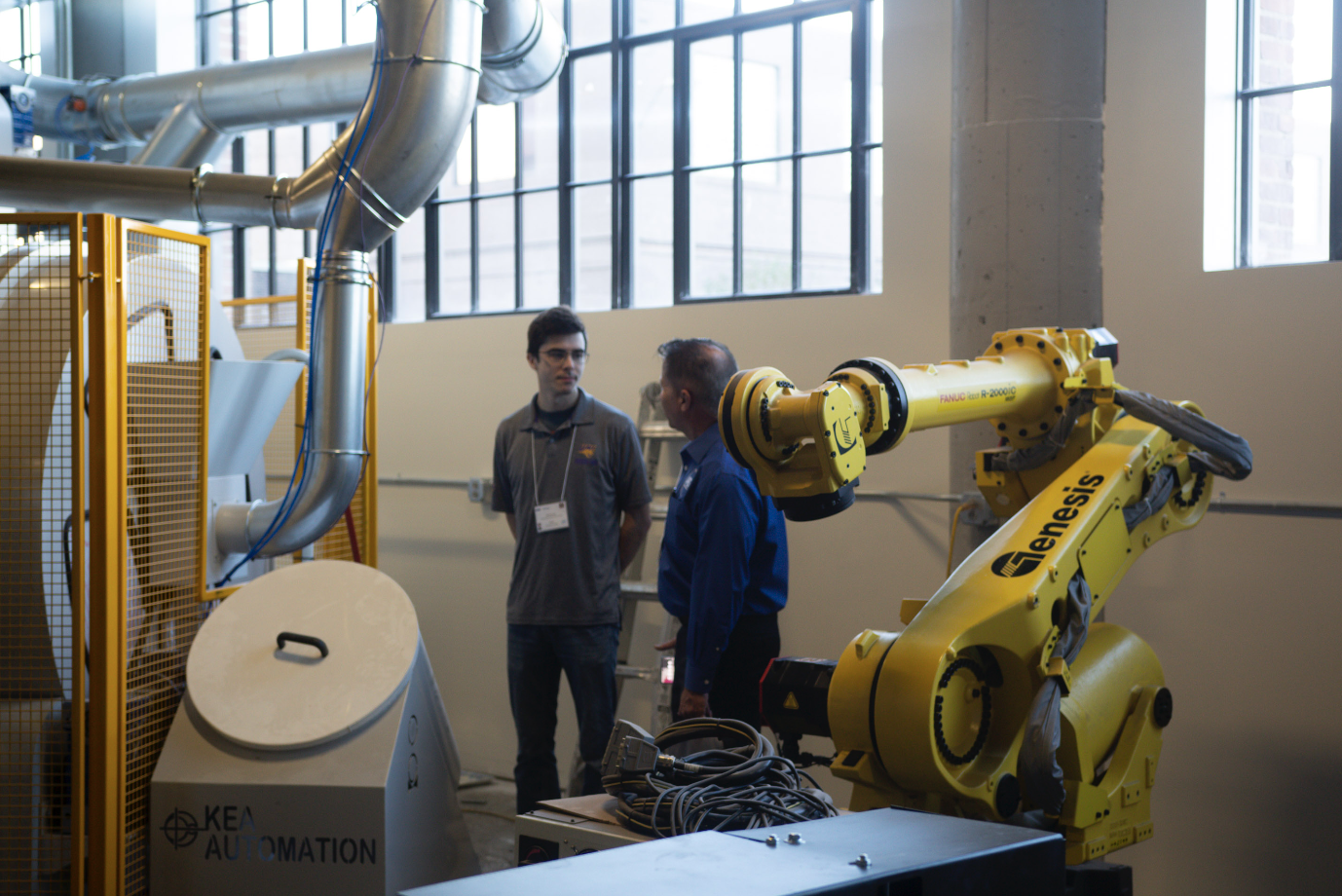UNI supports the Defense Logistics Agency
The University of Northern Iowa Foundry 4.0 Center is working with the U.S. Defense Logistics Agency to help the defense casting supply chain adopt Industry 4.0 technologies. A strong supply chain is essential for global economic competitiveness and national security since most durable goods contain manufactured metals and the U.S. military relies on metal castings for mission-critical assets. This project is developing and demonstrating 4.0 technologies.
One such technology is to develop, perfect and integrate automation of robotic capabilities for part post-processing. The Foundry 4.0 Center conducts demonstrations with foundries using their parts.
“Demonstrating the use of dual robotics post-processing on customer-specific parts is one of the best ways to introduce foundries to automation technologies,” said Jerry Thiel, director of the Foundry 4.0 Center. “The technological development and process improvements developed through these demonstration projects will further inform industry adoption and workforce upskilling efforts.”
These 4.0 technologies are not only for the foundry industry, but advanced programming techniques can help virtually any company utilize robots in their operation without time-consuming programming skills. Investment casting is another important area for automation. The Foundry 4.0 Center has developed a fully automated investment casting shelling cell that can be demonstrated to foundries and pattern shops statewide. This is the only automated cell of this type that can be directly accessed by small businesses across Iowa and beyond.

Another key area of technology is developing the computer-based Internet of Things (IoT) for processing data collection and analysis. Custom sensors have been developed for casting process monitoring. Sensors collect process data, which include temperature, pressure, moisture, gas chemistries, shift and rotation detection, and the magnetic field to predict casting success and provide valuable information to improve the casting process. This moves a variety of manufacturing processes from computer data acquisition to data-driven decision-making (Smart Manufacturing) to control the variables on the Foundry 4.0 Center’s casting production systems.
The UNI Center for Business Growth and Innovation is also working with foundry owners and managers to assess the business side of technology. The foundry industry consists of more than 90% small-to-medium-sized enterprises (SMEs) and frequently needs assistance with the business case analysis for investing in 4.0 technologies. As a result of the financial concern, foundries are hesitant to invest in new technology where the return on investment is not clearly understood. Assessing the SMEs’ financial position and working to establish and/or clarify the company’s strategic priorities helps guide decisions related to key Industry 4.0 investments.
